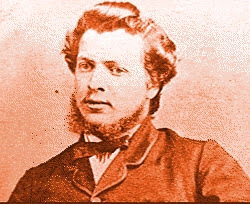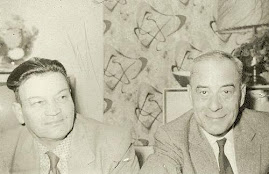Canada Continues Offensive Campaign Opposing UN Declaration on the Rights of Indigenous Peoples
http://www.nationtalk.ca/modules/news/article.php?storyid=8609
News Release FOR IMMEDIATE RELEASE April 17, 2008 Coast Salish Territory/Vancouver - In a statement delivered to a meeting of the Organization of American States Working Group to Prepare the Draft American Declaration on the Rights of Indigenous Peoples (" OAS Working Group") in Washington DC, the Canadian Government has declared that it will no longer actively participate in negotiations on the Draft American Declaration on the Rights of Indigenous Peoples ("Draft American Declaration").
Canada has formally reserved its position on the final text under negotiation. However, if the final document "does not adequately address Canada's concerns", Canada has indicated that it would attempt to block consensus unless two conditions are met: the document adopted clearly indicates that Canada does not support it and that there is an explicit understanding that the text therefore does not apply to Canada.
In doing so, Canada has continued its offensive campaign against the rights of Indigenous people in Canada and around the world by maintaining its rejection of the United Nations Declaration on the Rights of Indigenous Peoples ("United Nations Declaration") as the "starting point or minimum outcome for further negotiations" on the Draft American Declaration. "
In its statement to the OAS Working Group, the minority Conservative government has again demonstrated immense disrespect for the human rights of indigenous peoples", said Grand Chief Edward John of the First Nations Summit political executive. "Canada's attempts to "pick and choose" which human rights standards apply to it violate the rule of law in Canada and threaten the international human rights system. We urge the Canadian government to play a constructive role in deliberations on the Draft American Declaration, to drop its unreasonable conditions and to not block consensus on the final text."
The United Nations General Assembly overwhelmingly adopted the United Nations Declaration on September 13, 2007. Canada was one of only four States to vote against the United Nations Declaration.
The rights recognized by the United Nations Declaration constitute the "minimum standards for the survival, dignity and well-being of the indigenous peoples of the world". The majority of American States have supported the use of the United Nations Declaration as the baseline for negotiations on the Draft American Declaration.
Canada's statement to the OAS Working Group directly defies the motion passed by a majority of Parliamentarians in the House of Commons on April 8, 2008 calling upon the Government of Canada to endorse the United Nations Declaration, and for Parliament and the Government of Canada to "fully implement the standards contained therein".
"OAS member states have a duty to ensure the minimum standards set out in the United Nations Declaration are upheld in the draft American Declaration" stated A-in-chut (Shawn Atleo), Regional Chief of the BC Assembly of First Nations. "BC First Nations urge the Government of Canada to continue working with OAS member states and indigenous peoples to build on the important foundation of international human rights standards set out in the historic United Nations Declaration. Let us work together to leave a legacy for future generations that we can all be proud of."
"Canada, under the leadership of Prime Minister Stephen Harper continues to wantonly exploit the lands and resources of the indigenous peoples of this country. It is despicable to witness the lengths governments and companies have gone to use Canadian courts to jail Indigenous people for protecting their territories," said Grand Chief Stewart Phillip, President of the Union of BC Indian Chiefs. "We call on the entire international community to witness that Canada has prosecuted and imposed jail terms on indigenous leaders of the Agonquin Ardoch and Kitchenuhmaykoosib Inninuwug First Nations for their efforts to protect the birthright of their children and human rights of their peoples. Once again, at the international level, Canada has disgraced itself by demonstrating its racist and highly prejudicial attitudes towards the land and human rights of Indigenous Peoples here in Canada and throughout the world."
The First Nations Leadership Council is comprised of the political executives of the BC Assembly of First Nations, First Nations Summit, and the Union of BC Indian Chiefs. The Council works together to politically represent the interests of First Nations in British Columbia and develop strategies and actions to bring about significant and substantive changes to government policy that will benefit all First Nations in British Columbia.
For more information please contact:
Grand Chief Edward John 778-772-8218 First Nations Summit Political Executive
Grand Chief Stewart Phillip President, UBCIC: 250-490-5314
Ryneld Starr BC Assembly of First Nations
UN Experts Welcome Canada’s Backing for Indigenous Rights Declaration
http://www.nationtalk.ca/modules/news/article.php?storyid=8643
18 April 2008 – A group of independent United Nations human rights experts has lauded the endorsement given to a landmark declaration on the rights of indigenous peoples by the House of Commons in Canada – one of four States that voted against its adoption in the General Assembly last year.
In a statement issued today, the experts welcomed the motion adopted on 8 April by the House, regarding the UN Declaration on the Rights of Indigenous Peoples and relating to the call for Parliament and Government to fully implement its provisions.
“We are convinced that the standards and principles set forth in the Declaration will constitute a useful road-map for Canada's future laws and policies with regard to Aboriginal peoples, and will help improve their human rights situation,” the experts said.
"The Legislature's commitment to put the provisions of the UN Declaration into practice is a powerful sign for indigenous peoples in Canada and in other countries,” they added.
Adopted by the 192-member General Assembly last September, the Declaration outlines the rights of the world's estimated 370 million indigenous people and outlaws discrimination against them – a move that followed more than two decades of debate.
Canada, along with Australia, New Zealand and the United States, voted against the non-binding text, which sets out rights to culture, identity, language, employment, health, education and other issues.
The action by Canada's House of Commons is among recent steps taken by States to give effect to the Declaration, the group stated, noting that Bolivia and Ecuador recently gave legal force to the Declaration by enacting legislation. Similar initiatives are being discussed in other countries.
The statement was signed by the UN Special Rapporteur on the situation of human rights and fundamental freedoms of indigenous people, Rodolfo Stavenhagen; the UN Special Rapporteur on the right to adequate housing, Miloon Kothari; the UN Special Rapporteur on contemporary forms of racism, racial discrimination, xenophobia and related intolerance, Doudou Diène; and the Working Group on Arbitrary Detention.
Monday, April 21, 2008
More on UN Declaration on the Rights of Indigenous Peoples
Posted by
MetisMama
at
8:16 AM
![]()
![]()
Subscribe to:
Post Comments (Atom)





1 comment:
The government is right in not wanting to sign on to a declaration that could undermine the very fabric of Canada itself - although the leftards like Dion, Rae, and Layton are doing a pretty good job at it - What is it about "every Canadian already has these rights" that the Aboriginals don't understand? The Declaration is not applicable in Canada. This claim has no legal basis and is unprecedented in Canada's foreign and domestic policy.
As for human rights violations, the Aboriginal groups need to stop pointing their fingers at the government and start looking in the mirror. It is the "Chiefs" of these so called third world reserves that are responsible for any human rights violations. They are keeping their people from being part of a Canadian society.
If they want "human rights" then join the rest of Canada! After all its been named the best place in the world to live how many years straight now?
As a Metis and Aboriginal the only thing I will fight for is a level playing field for our people, nothing more, nothing less. Given a chance we can excell past that which is out there. Don't give us more than we deserve.
We have more rights as Canadians than any paper produced by the UN.
Post a Comment